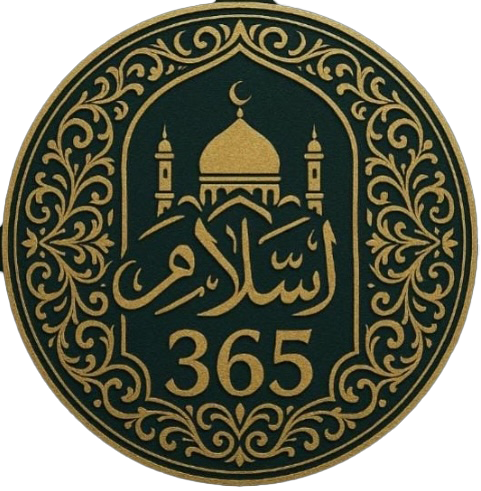Is the Qur’an Still Relevant Today?
Author: Shahid Hassan
The relevance of the Qur’an in today’s modern world is a significant question, especially considering how much society has changed since its initial revelation. Despite these changes, both the Qur’an and the teachings of the Prophet Muhammad ﷺ make it clear that the Qur’an is a universal and timeless message meant for all of humanity. It is not a book confined to the past; rather, it offers divine guidance for people of every era. The Qur’an speaks to both the moral and practical aspects of life, making its message highly applicable even in today’s fast-paced, complex world. As long as people continue to seek purpose, fairness, and truth, the Qur’an will remain a vital source of direction, enlightenment, and wisdom
“And We have not sent you [O Muhammad], except as a mercy to the worlds (al-ʿālamīn).”
(Surah Al-Anbiya 21:107)
Qur’an was revealed centuries ago in a very different social and historical setting—often addressing specific incidents, people, and circumstances—how can its message remain relevant in the present age? Some modern thinkers argue for a historical interpretation of the Qur’an. According to this view, the message of the Qur’an should be understood within the particular context in which it was revealed. They maintain that the laws and guidance found in the Qur’an were meant primarily for the people living in Mecca and Medina at that time. While they still affirm the Qur’an’s divine origin, they question whether its instructions were meant to apply universally. Proponents of this view often suggest that the Qur’an’s true aim was to promote certain core moral values—values they believe align with those of Western modernity—rather than to establish lasting legal or ritual systems. From this perspective, the specific rules in the Qur’an were temporary tools, meant to help early Muslim communities adopt new ethical frameworks, and could now be replaced or reformed to suit the needs of later generations.
“Say, [O Muhammad], ‘O mankind, indeed I am the Messenger of Allah to you all.’”
(Surah Al-A‘raf 7:158)
In contrast, the mainstream Islamic view throughout history has been that the Qur’an’s teachings are meant for all people, in all times and places. Even when verses speak to particular historical events, they are believed to contain lessons and rulings with timeless relevance. This article defends that position, offering evidence for the Qur’an’s universality and responding to popular objections. It argues that despite their immediate historical settings, every verse of the Qur’an addresses all of humanity.
The Qur’an offers guidance on timeless values like justice, compassion, integrity, patience, and ethical conduct—principles that are not limited to any specific period or culture.
Indeed, this Qur’an guides to that which is most upright…” (Surah Al-Isra 17:9)
The most straightforward way to prove that the Qur’an is meant for all of humanity is to look at the Qur’an’s own clear statements. Allah repeatedly describes the Qur’an as a universal message, intended for everyone, in every time and place.
1. A Message to All the Worlds:
The Qur’an refers to itself as a reminder for all the worlds—a term used multiple times throughout the text. For example, Allah says, “We did not send you except as a mercy to the worlds,” and “Blessed is He who revealed the Criterion upon His servant so that he may be a warner to the worlds.”
“[This is] a blessed Book which We have revealed to you [O Muhammad], that they might reflect upon its verses and that those of understanding would be reminded.” (Surah Sad 38:29)
The word al-ʿālamīn is used in the Qur’an to refer to all of creation. Allah even describes Himself as the “Lord of the worlds,” showing the all-encompassing scope of this phrase. Early scholars like Qatāda, Mujāhid, and al-Ḥasan interpreted al-ʿālamīn to mean all of creation, without exception.
Furthermore, Allah created humanity with diverse languages and colors as signs for al-ʿālamīn—again emphasizing that the message of the Qur’an is not limited by race, culture, age, or social status. A related verse adds: “This Book is only a reminder and a clear Qur’an to warn whoever is alive,” which naturally includes all future generations who will live after the Prophet ﷺ.
2. A Message for All People:
The Qur’an also directly affirms that the Prophet’s mission is to all of mankind. Allah says: “We have not sent you except to all of humankind,” using the word kāffa to indicate total inclusivity. Qur’anic commentator Ibn ʿAṭīyya explains that this means the Prophet ﷺ was sent to every human being, everywhere.
Additional verses reinforce this idea: “We have sent you, [O Muhammad], as a messenger to humanity,” and “Say: O humankind, I am the Messenger of God to you all.”
The Prophet ﷺ himself confirmed this in hadith, saying:
Every prophet before me was sent specifically to his own people, but I have been sent to all—both the red and the black.”
According to Imam al-Nawawī, “red” may symbolize non-Arabs, and “black” may refer to Arabs or even the jinn. Nawawī concludes that the hadith covers everyone, both human and jinn.
3. A Message to Both Humans and Jinn
The Qur’an also records how groups of jinn accepted the Prophet’s message after hearing it. They said: “O our people, respond to the Messenger of Allah and believe in him. Allah will forgive your sins and protect you from a painful punishment.” In another verse, they declare: “We have heard a wondrous Qur’an. It guides to what is right, and we have believed in it.”
This clearly shows that the Qur’an’s guidance reaches beyond just human beings, encompassing the unseen beings as well.
4. Scholarly Consensus on Qur’anic Universality
Throughout Islamic history, scholars have recognized the universal scope of the Qur’an. In his work al-Muwāfaqāt, the Andalusian scholar Abū Isḥāq al-Shāṭibī states that Islam was sent to benefit all people equally and that Islamic law (Shariah) applies broadly to all humans without exception.
He emphasized that religious obligations should not be dismissed for certain groups without valid reason, criticizing some Sufis of his time who attempted to exempt themselves from certain duties. According to al-Shāṭibī, Islamic law is meant to guide all people, equally and fairly, regardless of their background, time period, or social position. To claim that it applies only to certain people would contradict the universal benefit Islam is meant to bring..
Author: Shahid Hassan

